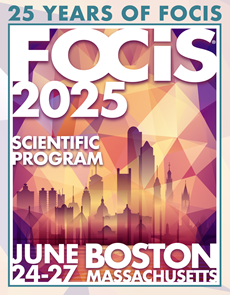Autoinflammatory Diseases
Session: Immunogenetics
Human ELF4 Deficiency Illuminates Its Role in Inflammasome Biology
Wednesday, June 25, 2025
5:00pm - 5:15pm East Coast USA Time
Location: Salons A-D
Angela Morka – Under-grad Student, The MCDB Department, Yale University; Sindhura Siddapureddy – Grad Student, Department of Immunobiology, Yale University School of Medicine; Sam Olyha – Grad Student, Department of Immunobiology, Yale University School of Medicine; Carrie Lucas – Associate Professor, Department of Immunobiology, Yale University School of Medicine
- DU
Dinesh Babu Uthaya Kumar
Fellow
Yale University
New Haven, Connecticut, United States
Presenting Author(s)
Abstract Text: We recently discovered a novel human inborn error of immunity (IEI) caused by loss-of-function variants in the X-linked ELF4 transcription factor. Pediatric male patients with Deficiency in ELF4, X-linked (DEX) suffer from recurrent fevers, oral ulcers, and mucosal-inflammation. Elevated CXCL1, IL-6, IL-18, and IL-12/IL-23, as well as clinical responsiveness to TNFalpha, IL-1, or IL-12p40 blockade, have been observed in DEX patients. To better understand the function of ELF4, we have generated mouse models of DEX. ELF4-deficient mouse macrophages exhibit a hyperinflammatory phenotype—yet the molecular drivers remain unclear. To address this question, we performed RNA-, ATAC-, and Cut-and-Run sequencing analysis of LPS-stimulated ELF4-deficient macrophages and wild-type (WT) macrophages. Here, we observed robust changes in the transcriptome, chromatin-accessibility, and epigenetic state of macrophages—including but not limited to effects on known pro-inflammatory genes. Specifically, in ELF4-deficient macrophages compared to WT-macrophages we find: (a) reduced chromatin-accessibility, (b) diminished H3K4me3 and K3K27ac occupancy, (c) reciprocal regulation between Ifnb1 (attenuation) and IL-1/IL-18 (activation), and (d) a substantial enrichment in the Nod-like receptor (NLR) pathway. In vitro, both ELF4-deficient macrophages and neutrophils exhibited elevated inflammasome cytokine maturation in response to ATP/Nigericin but not flagellin, poly[dA-dT], or Val-boroPro at the concentrations tested. Notably, exogenous IFN-beta1 addition to ELF4-deficient cells attenuated inflammasome activity to WT levels. Thus, we have discovered a key role for the ELF4 transcription factor in regulating the magnitude of inflammasome activation in myeloid cells, providing insights into basic biology and offering potential therapeutic targets for inflammatory diseases.

